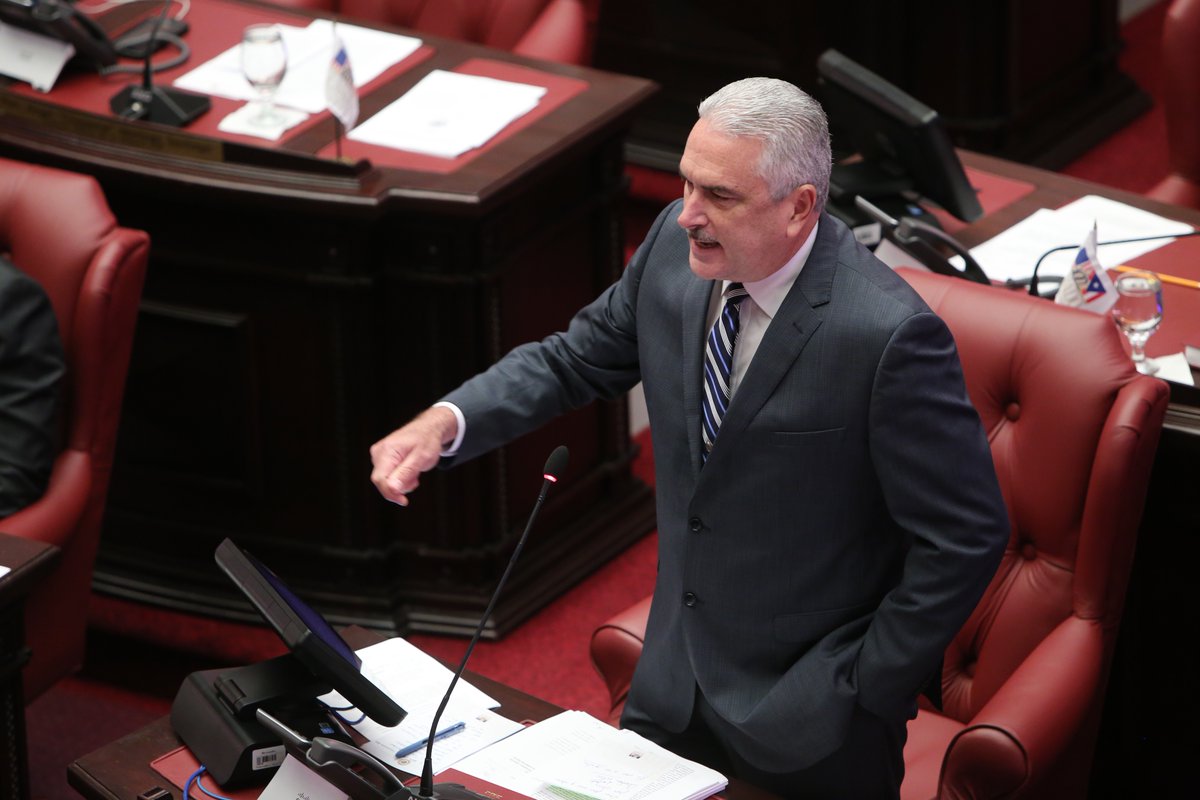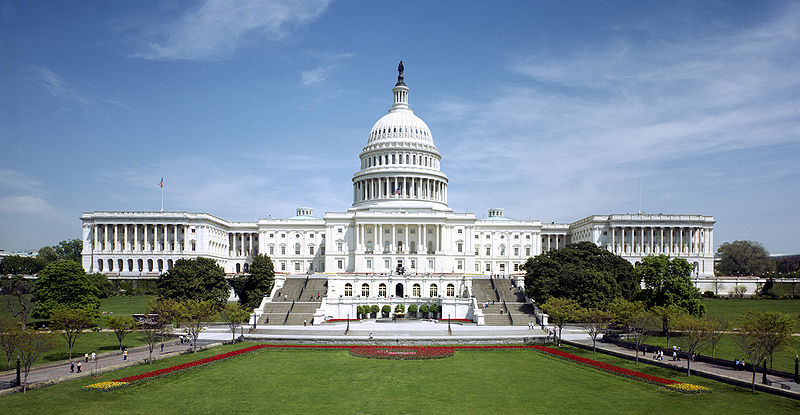OBoard says Law 80 is ‘not only problem’ with P.R.’s labor landscape


Senate President Thomas Rivera-Schatz
As the Puerto Rico Senate approved Bill 1011 to repeal Law 80 of 1976, with a number of amendments, the Financial Oversight and Management Board for Puerto Rico released a 2,000+ page document on labor reform, that called the long-standing mandate “part of the problem.”
In the lengthy analysis entitled “Labor Reform as a Catalyst for Growth,” the federally-appointed regulatory body acknowledged that repealing Law 80 “will not by itself cure the economic woes of the island. While significant, it is only one of the components of a Labor Reform Package that Puerto Rico needs to address.”
“The change in the regime that regulates discharge decisions is part of a strategy to attract job creating investments to the island. Moreover, the economic literature is clear — rules like Law 80 skew investments to capital-intensive operations and reduce in relative terms the demand for labor, which means Puerto Rico will continue its pattern of fewer employment opportunities,” the entity stated in the document that cited labor reform scenarios around the world.
Late Wednesday, the Senate passed the repeal of the law, but included a number of amendments that reportedly were not to the Oversight Board’s liking, and went against the agreement reached with Puerto Rico Gov. Ricardo Rosselló, according to published reports.
The legislative body included changes including an amendment that would make the causes for job termination those that are included in a contract prospectively. That would mean limiting the application of Law 80-1976 exclusively to employees who have such protections and guarantees when the new law is approved.
The approval would exempt new employees and employers that recruit new employees from the provisions of Law 80-1976. But employees dismissed from their job would continue to be protected, the lawmakers stated.
“We said we were not going to repeal Law 80 and we did not repeal it, we said that we were going to protect the workers and we are doing it, this is clear,” Senate President Thomas Rivera-Schatz said during his turn in the debate related to Senate Bill 1011.
Hiring people ‘at the lower end of wage spectrum’
Meanwhile, in its paper, the Oversight Board said that getting Puerto Rico’s economy moving will require hiring people at the lower end of the wage spectrum and getting them out of the informal economy and into formal jobs.
“This requires the effective implementation of the entire package of labor reform. Adopting the ‘at will’ employment regime that has supported the substantially more successful economies of mainland states, is a necessary foundation to moving forward,” the entity stated.
“Much of the questioning in the public discourse has been around how the structural reforms, in particular labor, will positively impact Puerto Rico’s residents. The reality is that a single reform, in isolation from the rest, is not likely to impact growth substantially,” it further noted.
“Rather, it is the whole program and package of structural reforms that truly change the competitiveness of an economy. Puerto Rico, now more than ever, needs to focus on transforming the economy into one that is competitive,” it stressed in the document.
Putting the Puerto Rico labor market on a competitive footing with other U.S. jurisdictions will make the island’s investment environment more competitive with those same U.S. jurisdictions, the Oversight Board claimed.
“It is from the increased investment that the demand for labor will find its biggest boost and begin a virtuous cycle of investment, employment, growth and further investment. By focusing on changing Puerto Rico’s labor environment, new investors will be attracted to Puerto Rico given the confidence in a strong labor market that has flexible rules. By getting firms to invest, economic growth will be enabled,” it added.
Many employment protection laws will continue to apply
Adopting the “at-will” employment regime will not diminish labor standards for workers in Puerto Rico, it noted.
Moreover, they will continue to be protected by a very broad scope of antidiscrimination laws. Remedies under these laws are typically greater than the relief under Law 80.
Excluding all applicable federal laws, Puerto Rico law will continue to prohibit the discharge of an employee for the following reasons:
- Because of age, race, color, sex (gender), sexual orientation, gender identity, social origin or condition, national origin, political or religious beliefs or affiliation, disability, marriage to an employee of the employer, being a victim or being perceived as a victim of domestic violence, sexual aggression or stalking, present or prior military service, or veteran status.
- Retaliation for having opposed sexual harassment in the workplace; having filed a complaint, testified or collaborated or participated in any manner in an investigation, proceeding or hearing in connection with a sexual harassment complaint.
- For providing or intending to provide verbal or written testimony or information to an administrative, judicial, or legislative body in Puerto Rico, or in accordance with the employer’s established internal procedures or before an employer’s representative with authority, provided the expressions are nondefamatory and do not disclose legally protected confidential or privileged information.
- For having (a) disclosed his/her salary to other employees or asked other employees about their compensation; (b) objected to any practice prohibited by Puerto Rico’s Equal Pay Act (PREPA); (c) submitted a grievance or complaint regarding PREPA rights in any forum, or (d) offered or tried to offer, verbally or in writing, any testimony or information in an investigatory procedure against the employer regarding PREPA violations.
- Dismissal, without just cause, of a pregnant employee.
- For refusing to enter an alternate weekly work schedule agreement (which includes compressed workweeks) or for requesting the modification of the schedule, number of hours, or place of work as authorized under Puerto Rico’sovertime law.
- Dismiss an employee working for the employer before the effective date of the “Labor Transformation and Flexibility Act” in or to hire a new employee at the lower vacation leave monthly accrual rates authorized for new hires.
- Failing to reinstate, without just cause, a female employee returning from the statutory leave provided for maternity rest or after receiving a minor in her home for adoption.
- For participating or having participated in jury duty or failing to reinstate an employee upon conclusion of such jury duty.
- For providing or intending to provide verbal or written testimony or information to an administrative, judicial, or legislative body in Puerto Rico, provided the expressions are non-defamatory and does not disclose legally protected confidential or privileged information.
- For refusing to lift objects that exceeds maximum weight limits established by law or regulation.
- For refusing to grant payroll deduction authorization to support charitable institutions and/or community schools.
- Interference with any military leave, discharge or failing to reinstate former employee upon conclusion of the military duty.
- Dismissing or refusing to reinstate an athlete or trainer certified by the Puerto Rico Olympic Committee as athletes or trainers participating in certain sports events that require leaves of absence.
- For filing a complaint against the employer under the Puerto Rico Occupational Safety and Health Act (PROSHA), having caused an investigation, testifying or intending to testify regarding matters covered under the act or failing to reinstate the employee after participating in a required medical examination.
- Dismissing an employee, without just cause, while legally protected leaves for work-related and non–work-related disabilities under the workers compensation and non-occupational disability programs, as well as refusing to reinstate the employee after being released from treatment in accordance with the provisions of such laws.
To implement the labor reform package, address labor market challenges and encourage residents to participate in the formal labor market, the government must launch an Earned Income Tax Credit (EITC) program by January of 2019. The government also must institute a work requirement for the Nutrition Assistance Program (PAN, for its initials in Spanish,) the document noted.












